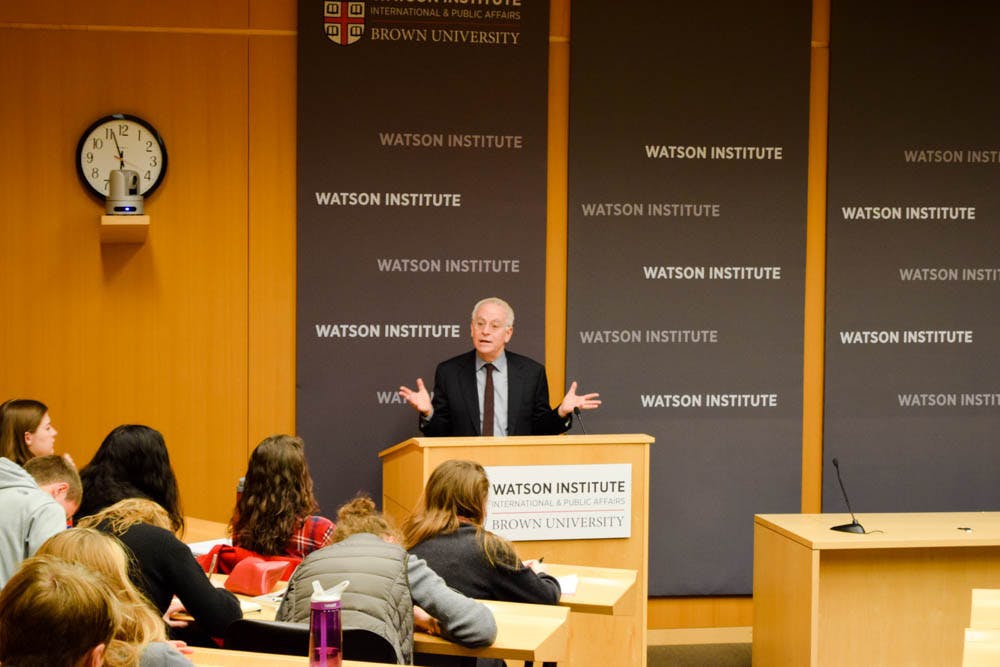The University hosted Robert Post, dean and professor of law at Yale Law School, as part of its Reaffirming University Values event series Monday. During the talk, which was titled “Freedom of Speech in the University,” Post explored important distinctions between the legal protections of speech given by the First Amendment and the regulation of speech on college campuses.
As a point of reference, Post outlined three rules that cannot be broken in regulating speech if First Amendment compliance is to be achieved: The state cannot be content-discriminatory, make judgements about the truth or falsehood of opinions or compel people to speak, Post said.
Post prefaced his analysis with a quote from Aristotle: “We’re all talking animals.”
“Everything we do, we do by communication,” Post said. “If all forms of speech were to be protected simply because we’re speaking, then all behavior would be free from regulation.” Because society accepts various forms of regulatory behavior, freedom of expression is “the exception to the rule,” he added.
“We have freedom of speech to govern ourselves in a democracy,” Post said. “Freedom of speech serves, in the United States, the value of democratic legitimation.”
Post qualified his view of how freedom of speech fits into a campus context. He outlined research and teaching as the two major purposes of all universities. To facilitate progress in these two areas, universities consciously regulate speech in ways that break the doctrine of traditional freedom of expression, Post said.
“If we’re talking about the research function of the university, is there really no content discrimination? We give grants to one subject rather than another subject, we give tenure for one field rather than another field,” Post said. “We advance knowledge in the university by making judgments all the time. We make judgments of competence. … If we couldn’t make these judgments of quality, we couldn’t be a university.”
Unlike the United States as a democratic nation, “the function of a university is not to create democratic legitimation,” Post said. “The purpose of the university is to create new knowledge. These are different functions, so they require different forms of regulating speech.”
Like research, the norms of teaching are also governed differently, Post said. “In my class, students talk when they’re called upon about the subject we’re discussing in some kind of order, and they treat each other with respect,” he added. “I believe they learn better if they treat each other with respect. My object is not freedom of expression. … My object is to educate students.”
Similarly, professors don’t have unlimited freedom of expression in what or how they teach, Post added. “If I’m teaching that the Holocaust didn’t happen or that the U.S. Constitution was ratified in 1954, then of course I’m going to be regulated, and rightly so.”
Free speech controversies that occur outside the classroom must be dealt with on a case-by-case basis and cannot be solved with oversimplified notions of free expression, Post said. Controversies often happen in cases where “it’s not clear what mission the university is actually serving,” he added. “To invoke abstract principles of freedom of speech and reference our First Amendment, that’s going to get you nothing but confusion.”
The University’s Reaffirming Values series will continue with a talk titled “Open and Inclusive Inquiry: Where Do We Go From Here?” Dec. 7. Joshua Cohen, distinguished senior fellow in law, philosophy and political science at the University of California at Berkeley, and Danielle Allen, director of the Edmond J. Safra Center for Ethics and professor of government and education at Harvard, will speak.





